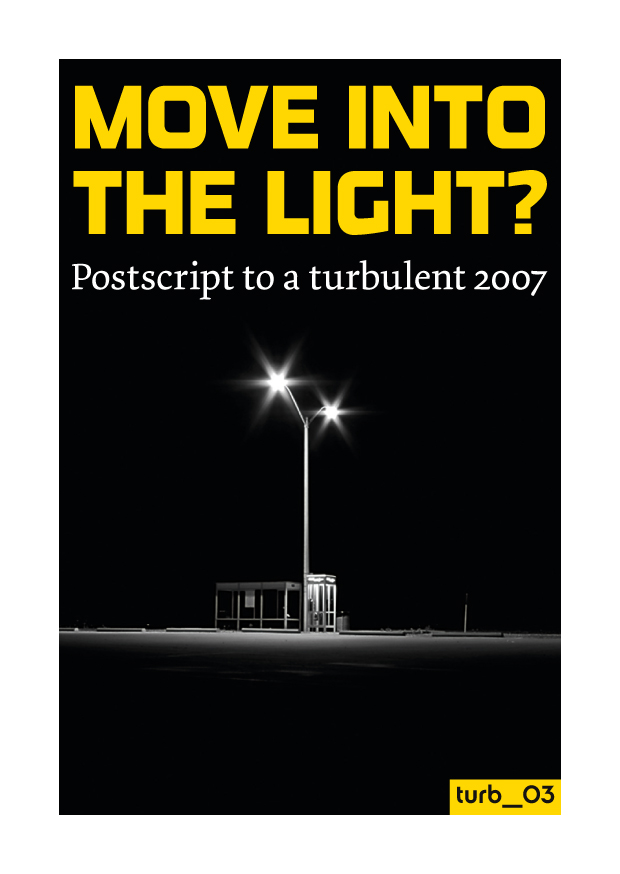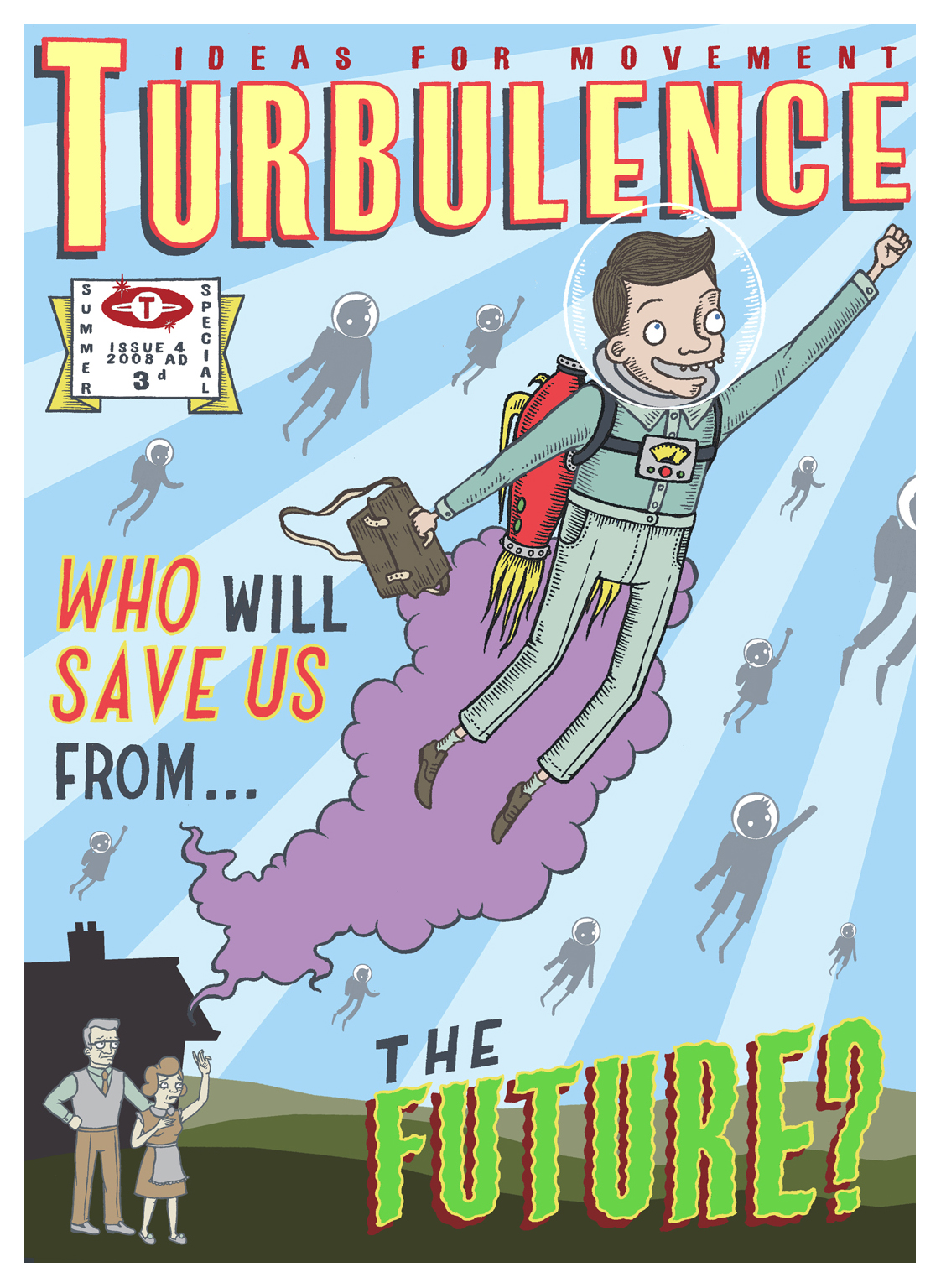Turbulence journal 1-5 (2007-2009)
Filed under journal | Tags: · activism, capitalism, climate crisis, neoliberalism, networks, politics
Turbulence is a journal/newspaper that we hope will become an ongoing space in which to think through, debate and articulate the political, social, economic and cultural theories of our movements, as well as the networks of diverse practices and alternatives that surround them.

What would it mean to win?
Turbulence 1, 2007
The Turbulence collective produced 7,000 copies of a free 32-page newspaper distributed at the camps, blockades and alternative summits that made up the mobilisation against the G8 summit in Heiligendamm in June 2007. The theme of the 14 articles from individuals and groups from across the world tackled the difficult question of ‘What would it mean to win?’.
PDF (original tabloid format, 289 x 380mm)
PDF (journal format, 152 x 229mm)

Move into the light?
Turbulence 3, December 2007
6,000 copies were printed in English, with a further 4,000 in German.
PDF (A6 booklet)
PDF (German version)

Who can save us from the future?
Turbulence 4, Summer 2008
Today, the very act of thinking about the future has become a problem. What both capitalism and ‘really existing socialism’ had in common was the belief in a future where infinite happiness would spring from the infinite expansion of production: sacrifices made in the present could always be justified in terms of a brighter future. And now? The socialist future has been dead since the fall of the Berlin wall. After that we seemed to live in a world where only the capitalist future existed (even when it was under attack). But now this future, too, is having its obituaries composed, and impending doom is the talk of the town. The ‘crisis of the future’ – that is, of our capacity to think about the future – is born out of these twin deaths: today it is easier to imagine the end of the world than the end of capitalism.

And Now for Something Completely Different?
Turbulence 5, December 2009
Until recently, anyone who suggested nationalising the banks would have been derided as a ‘quack’ and a ‘crank’, as lacking the most basic understanding of the functioning of a ‘complex, globalised world’. The grip of ‘orthodoxy’ disqualified the idea, and many more, without the need even to offer a counter-argument.
And yet, in this time of intersecting crises, when it seems like everything could, and should, have changed, it paradoxically feels as though very little has. Individuals and companies have hunkered down to try and ride out the crisis. Nationalisations and government spending have been used to prevent change, not initiate it. Anger and protest have erupted around different aspects of the crises, but no common or consistent reaction has seemed able to cohere. We appear unable to move on.
For many years, social movements could meet and recognise one another on the common ground of rejecting neoliberalism, society’s old middle ground – those discources and practices that defined the centre of the political field. The crisis of the middle has meant a crumbling of the common.
And what now? Will neoliberalism continue to stumble on without direction, zombie-like? Or, is it time for something completely different?
Comment (0)Leave a Reply

